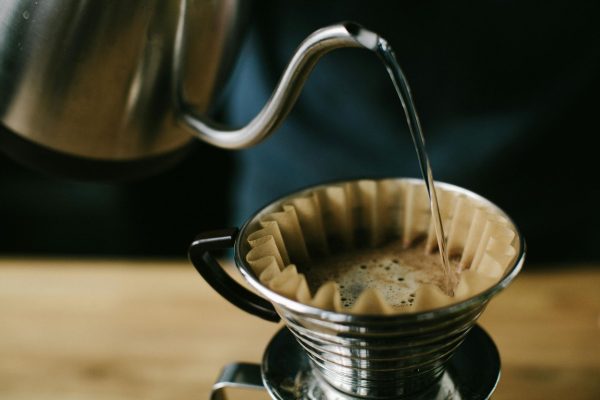
Do you love the rich flavor of coffee but want to reduce your caffeine intake? You’re not alone. Many coffee enthusiasts are searching for low caffeine coffee options that still deliver on taste. Fortunately, several factors affect caffeine content in coffee beans, from the variety to processing methods. As specialists in green, unroasted coffee beans from around the world, Intercontinental Coffee Trading is here to guide you through the world of coffees with lower caffeine content.
Understanding Caffeine Content in Coffee Beans
Caffeine occurs naturally in coffee plants as a defense mechanism against insects and animals. However, not all coffee beans are created equal when it comes to caffeine content. The amount of caffeine in your cup depends on several factors including the coffee species, variety, growing conditions, roasting level, and brewing method.
Most people don’t realize that a standard 8-ounce cup of brewed coffee typically contains between 80-100 mg of caffeine. For those looking to reduce their caffeine intake while still enjoying their favorite beverage, knowing which coffee varieties naturally contain less caffeine is essential.
Arabica vs. Robusta: Choosing Low Caffeine Coffee
Perhaps the most significant factor in determining coffee’s caffeine content is the species. Coffee primarily comes from two species: Coffea arabica (Arabica) and Coffea canephora (Robusta).
Robusta coffee contains approximately twice the caffeine of Arabica beans—about 2.2% caffeine content compared to Arabica’s 1.2%. This makes Arabica beans the natural choice for anyone seeking lower caffeine coffee options. Not only do Arabica beans contain less caffeine, but they’re also known for their superior flavor profile with nuanced sweetness and complexity.
At Intercontinental Coffee Trading, we source premium Arabica beans from regions worldwide, ensuring our customers have access to the finest low caffeine coffee options available in the market.
The Lowest Caffeine Coffee Varieties
While Arabica beans generally contain less caffeine than Robusta, certain Arabica varieties have even lower caffeine content than others.
Laurina (Bourbon Pointu)
The Laurina variety, also known as Bourbon Pointu, is one of the lowest caffeine coffee options available, containing approximately 0.6% caffeine—roughly half the caffeine of typical Arabica beans. Originally from Réunion Island, this rare variety produces a delicate cup with floral notes and natural sweetness.
Demicaff Varieties
Some naturally occurring or cultivated coffee varieties have been specifically developed for their lower caffeine content. These “demicaff” varieties can contain 30-50% less caffeine than standard Arabica beans while maintaining excellent flavor profiles.
How Processing Methods Affect Caffeine Content
The way coffee is processed can influence its final caffeine content, making certain processing methods preferable for those seeking coffees with lower caffeine.
Decaffeination Processes
While not naturally lower in caffeine, decaffeinated coffees undergo specific processes to remove most of the caffeine. The most common methods include:
- Swiss Water Process: Uses water, temperature, and time to remove caffeine without chemicals
- Ethyl Acetate Process: Utilizes compounds found naturally in fruits to extract caffeine
- Carbon Dioxide Process: Employs pressurized CO2 to selectively remove caffeine
- Methylene Chloride Process: Uses a chemical solvent to extract caffeine
Each method removes between 97-99% of the caffeine while attempting to preserve the coffee’s original flavor profile.
Roast Levels and Their Impact on Caffeine
Contrary to popular belief, lighter roasts generally contain slightly more caffeine than darker roasts. This occurs because coffee beans lose mass during the roasting process, but the caffeine content remains relatively stable.
By weight, darker roasts contain slightly more caffeine (as each bean weighs less but has similar caffeine content). However, when measured by scoops, lighter roasts typically contain more caffeine because the beans are denser.
For those seeking low caffeine coffee, darker roasts measured by scoops may provide a marginal reduction in caffeine content compared to lighter roasts.
Brewing Methods for Reduced Caffeine
How you prepare your coffee significantly affects the caffeine content in your final cup. Even with the lowest caffeine coffee beans, certain brewing methods extract more caffeine than others.
The following brewing methods are listed from highest to lowest caffeine extraction:
- Espresso (per ounce, though total volume is smaller)
- Turkish coffee
- French press
- Drip coffee
- Pour-over
- Cold brew (despite longer steeping, uses less heat)
For reduced caffeine, consider using brewing methods toward the bottom of this list, using shorter brewing times, or adjusting your coffee-to-water ratio to create a weaker brew.
Regional Variations in Caffeine Content
Growing conditions, altitude, and soil composition can affect caffeine levels in coffee beans. Generally, coffee grown at higher elevations tends to develop more slowly, potentially resulting in slightly lower caffeine content.
Some regions known for producing coffees that may have comparatively lower caffeine levels include:
- High-altitude Ethiopian beans
- Some Central American varieties from Guatemala and Honduras
- Select Brazilian cultivars
Intercontinental Coffee Trading specializes in sourcing specialty grade beans from these regions, providing roasters with access to potential lower-caffeine options for their customers.
Making the Switch to Lower Caffeine Options
If you’re looking to reduce your caffeine intake without giving up coffee entirely, consider these strategies:
- Start by blending your regular coffee with a low caffeine option
- Gradually transition to 100% Arabica beans from high-altitude regions
- Experiment with different roast levels and brewing methods
- Consider specialty varieties like Laurina when available
At Intercontinental Coffee Trading, we’re committed to helping our roastery partners provide diverse coffee options for all consumers, including those seeking reduced caffeine intake. Our extensive selection of premium green coffee beans includes numerous low caffeine varieties from sustainable farms worldwide.
Ready to explore our selection of coffee beans with lower caffeine content? Contact Intercontinental Coffee Trading today to discover how our specialty green coffee offerings can help you meet the growing demand for reduced-caffeine options without compromising on quality or flavor.
Note: While certain coffee varieties naturally contain less caffeine than others, individual sensitivity to caffeine varies. For those with medical concerns regarding caffeine consumption, please consult with a healthcare professional.
